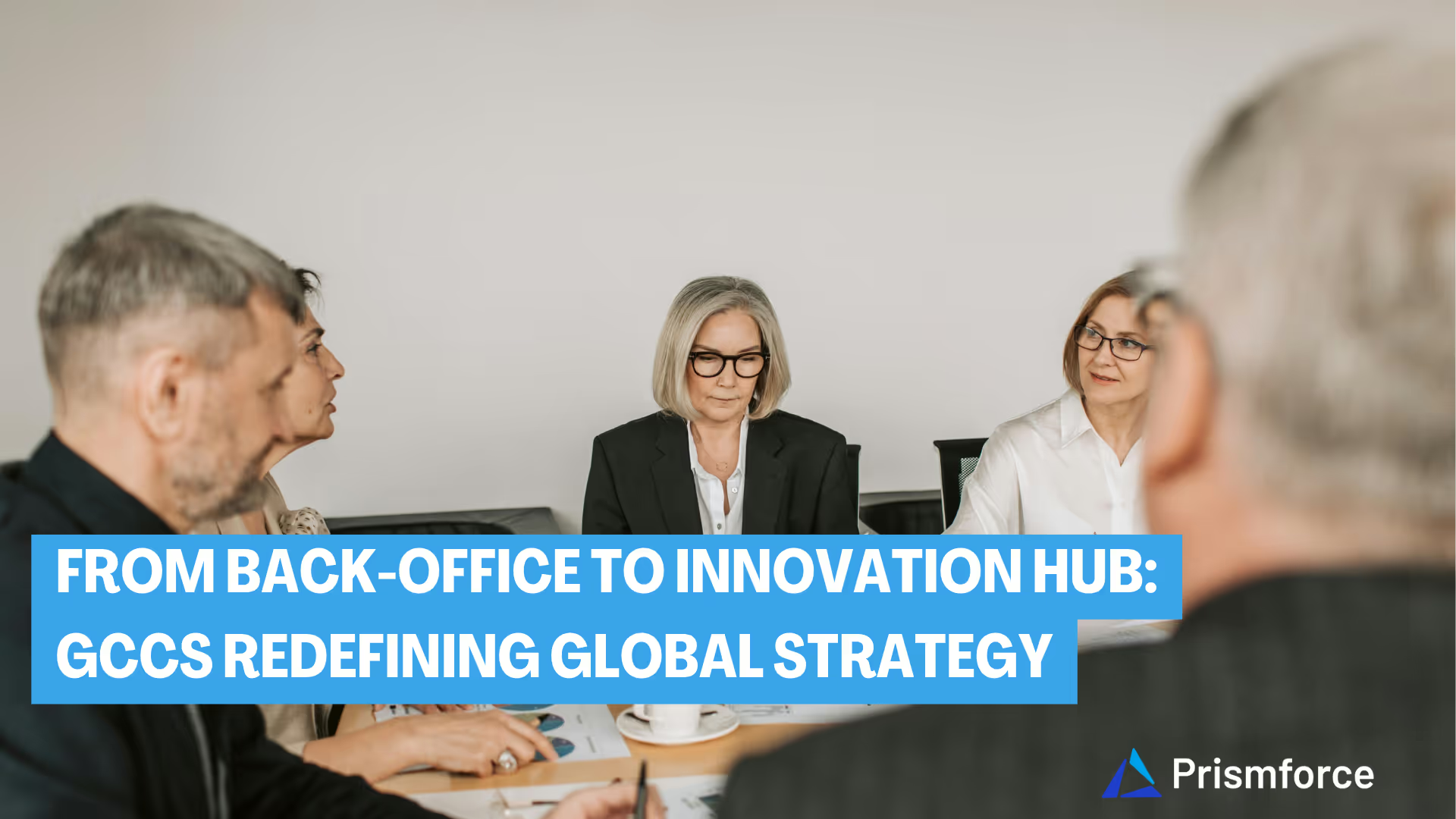
"In the digital age, the most valuable asset a company has is its talent. And the most valuable asset of talent is its skills." - Laszlo Bock, Former SVP of People Operations at Google
Today, the rules of talent acquisition have been rewritten. Traditional hiring practices, reliant on degrees and past experience, are no longer sufficient to navigate the complexities of the modern workplace. The rise of AI, automation, and the gig economy has ushered in a new era where skills reign supreme. We are amidst a recruitment revolution, where the ability to identify, assess, and nurture skills is the key to unlocking organizational success.
The Changing Landscape of Talent Acquisition
The talent acquisition landscape has undergone a dramatic transformation in recent years. The skills gap, once a looming threat, is now a stark reality. Companies across the globe are struggling to find candidates with the right skills to fill critical roles.
- The Skills Gap is Real and Growing: According to a 2023 McKinsey report, 87% of companies worldwide acknowledge they either already have a skills gap or expect to have one within a few years.
- The Half-Life of Skills is Shrinking: The World Economic Forum estimates that the average shelf-life of a skill is now just five years. This means that the skills we learn today may be obsolete in the near future.
- The Rise of the Gig Economy: The gig economy is booming, with an estimated 57.3 million people in the U.S. freelancing in 2023. This shift towards flexible work arrangements is changing the way companies access and engage talent.
Simultaneously, the expectations of candidates have evolved. They seek purpose-driven work, opportunities for growth, and personalized experiences throughout the hiring process. The traditional, one-size-fits-all approach to recruitment is no longer effective. As HR thought leader Meghan M. Biro puts it, "We need to stop hiring for the job that exists today and start hiring for the job that will exist tomorrow."
The Imperative of Skills-Based Hiring
To thrive in this new reality, organizations must embrace skills-based hiring. It's not just about filling vacancies; it's about building an agile, future-ready workforce. By prioritizing skills, companies can:
Expand their Talent Pool:
Skills-based hiring enables companies to look beyond traditional credentials and tap into a wider pool of talent, including those with non-traditional backgrounds or career paths. This opens doors for individuals who may possess the necessary skills but lack formal qualifications, fostering a more diverse and inclusive workforce.
Improve the Quality of Hire:
By focusing on skills, companies can identify candidates who are more likely to be successful in their roles, leading to increased productivity, reduced turnover, and a stronger bottom line. A study by LinkedIn found that companies that use skills-based hiring are twice as likely to make a successful hire.
Enhance Diversity & Inclusion:
Skills-based hiring promotes a more equitable and inclusive workplace by evaluating candidates based on their capabilities, rather than their pedigree. This levels the playing field and ensures that opportunities are accessible to all, regardless of their background or educational attainment.
Foster Agility and Adaptability:
A skills-based workforce is better equipped to navigate change and embrace new technologies, ensuring the organization remains competitive in a dynamic market. The ability to learn, unlearn, and relearn is becoming increasingly critical in today's fast-paced world.
As Josh Bersin himself states, “The future of work is skills-based. Companies that embrace this new reality will be the ones that thrive in the years to come.”
Leveraging Technology to Drive Skills-Based Hiring
Technology is the cornerstone of effective skills-based hiring. AI-powered talent acquisition platforms offer a range of capabilities that can transform the way companies identify, assess, and nurture skills.
Create a Comprehensive Skills Inventory:
By analyzing resumes, social profiles, and assessment data, AI can create a dynamic skills inventory for each candidate, providing a holistic view of their capabilities. This allows recruiters to go beyond keywords and gain a deeper understanding of a candidate's true potential.
Match Candidates to Roles with Precision:
AI algorithms can match candidates to open roles based on their skills and potential, ensuring the right fit for both the individual and the organization. This eliminates the guesswork from the hiring process and increases the likelihood of a successful match.
Personalize the Candidate Experience:
AI can deliver tailored content and recommendations to candidates, enhancing their engagement and fostering a positive impression of the company. This creates a more meaningful and memorable experience for candidates, even those who may not ultimately be hired.
Identify Skill Gaps and Development Opportunities:
By continuously analyzing skills data, AI can identify areas where the workforce needs to upskill or reskill, enabling proactive talent development initiatives. This empowers organizations to stay ahead of the curve and ensure their employees have the skills needed to succeed in the future.
Streamline the Hiring Process:
AI can automate many time-consuming tasks, such as resume screening and interview scheduling, freeing up recruiters to focus on more strategic activities. This leads to a faster and more efficient hiring process, improving the candidate experience and reducing time-to-fill.
Case Studies: Companies Leading the Way
Several forward-thinking companies have already embraced skills-based hiring and are reaping the benefits.
IBM:
IBM has shifted its focus from degrees to skills, recognizing that many individuals possess the necessary capabilities even without a formal education. They have implemented a range of skills assessments and training programs to identify and develop talent. As a result, IBM has seen a significant increase in the diversity of its workforce and a reduction in time-to-fill for critical roles.
Accenture:
Accenture has launched a skills-based talent marketplace that connects employees with projects and opportunities based on their skills and interests. This fosters a culture of continuous learning and development, while also ensuring that the company can quickly deploy talent to where it's needed most. This initiative has led to increased employee engagement and improved project outcomes.
PwC:
PwC has removed the degree requirement for many of its roles, recognizing that skills and experience are more important predictors of success. They have also implemented a range of digital tools to assess candidates' skills and potential. This has enabled PwC to tap into a wider talent pool and attract candidates with diverse backgrounds and experiences.
Amazon:
Amazon has invested heavily in skills-based hiring and training programs, recognizing that the skills needed for its workforce are constantly evolving. They have partnered with various educational institutions and training providers to upskill and reskill their employees. This has enabled Amazon to build a highly skilled and adaptable workforce, capable of meeting the challenges of the digital age.
These companies are demonstrating that skills-based hiring is not just a theoretical concept, but a practical and effective approach to talent acquisition.
Overcoming Challenges in Skills-Based Hiring
While skills-based hiring offers numerous benefits, it also presents certain challenges.
Bias in Skill Assessment:
Traditional hiring processes are often riddled with unconscious bias. It’s crucial to ensure that skills assessments are designed and implemented in a way that minimizes bias and promotes fairness. This may involve using a combination of assessment methods, including both objective and subjective measures.
Defining and Measuring Soft Skills:
Soft skills like communication, leadership, and adaptability are crucial but can be challenging to quantify. Companies need to develop effective methods to assess these skills. This may involve using behavioral interviews, simulations, or 360-degree feedback.
Integrating Skills Data into Existing HR Systems:
Many companies struggle with integrating skills data into their existing HR systems. This can hinder their ability to track skills development and make informed talent decisions. Investing in a robust talent management platform that can capture and analyze skills data is essential for successful skills-based hiring.
Prismforce: Empowering Skills-Based Hiring
Prismforce’s AI-powered talent supply chain platform emerges as a powerful ally for organizations seeking to implement effective skills-based hiring strategies. By leveraging AI and machine learning, Prismforce enables companies to:
Build a Dynamic Skills Ontology:
Prismforce creates a continuously updated skills ontology that reflects the latest industry trends and job requirements, ensuring that your talent acquisition efforts are always aligned with the market.
Assess Skills at Scale:
Prismforce offers a range of skills assessments, including coding challenges, simulations, and behavioral assessments, to evaluate candidates' capabilities objectively and efficiently.
Identify and Nurture Internal Talent:
Prismforce helps companies identify hidden talent within their existing workforce, providing insights into employees' skills and potential for growth. This enables organizations to develop their talent from within and reduce reliance on external hiring.
Make Data-Driven Hiring Decisions:
Prismforce provides powerful analytics and reporting capabilities, allowing companies to track key metrics and make informed decisions about their talent acquisition strategies.
By partnering with Prismforce, companies can harness the power of AI to drive skills-based hiring, build a future-ready workforce, and achieve their strategic objectives.
The Future of Work is Skills-Based
The recruitment revolution is not just about changing the way we hire; it's about reimagining the relationship between employers and employees. In the skills-based economy, success will depend on the ability to identify, develop, and leverage the skills of the workforce. Companies that create environments where employees are encouraged to learn, grow, and apply their skills in meaningful ways will not only attract top talent but also foster a culture of innovation and continuous improvement.
"The only way to do great work is to love what you do. If you haven't found it yet, keep looking. Don't settle." - Steve Jobs
In the skills-based economy, success will depend on the ability to identify, develop, and leverage the skills of the workforce. Companies that create environments where employees are encouraged to learn, grow, and apply their skills in meaningful ways will not only attract top talent but also foster a culture of innovation and continuous improvement. The future of work is skills-based, and the time to start preparing is now.





